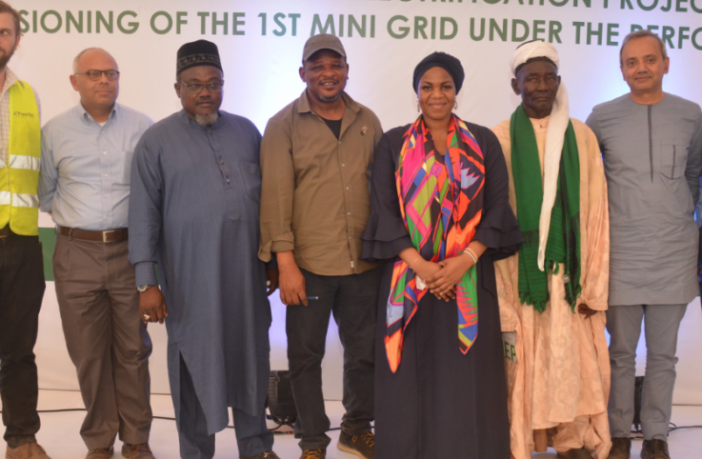- The federal government of Nigeria, through its implementing agency – Rural Electrification Agency (REA), has facilitated the commissioning of a solar hybrid mini-grid power plant in Rokota Community, Edati local government area, Niger State.
- The project is the first to be commissioned under the World Bank-supported Nigeria Electrification Project (NEP).
- It will provide clean, safe and reliable electricity to an expected three thousand people in the community.
In his welcome address, the Village Head of Rokota Community, HRH, Alhaji Adamu Mohammed Rokota, expressed appreciation to the federal government of Nigeria, the World Bank and PowerGen for deploying the solar hybrid mini-grid in the community.
“At Rokota, our children can study under the glow of clean electricity. As enterprising people blessed with kaolin, red clay and iron ore resources, we look forward to more commercial activities and small businesses growing Rokota’s economy.”
Bright future for off-grid
REA‘s managing director Damilola Ogunbiyi emphasised the importance of using off-grid electrification technologies to increase electricity access in Nigeria.
She also stated “there are countless investment opportunities in the off-grid market. This is why the REA is collaborating with private sector solar developers. We are also committed to using renewable energy in the reduction of annual greenhouse carbon emissions by 25,0000 metric tons. This is in adherence to Nigeria’s commitment to the Paris Agreement on Climate Change.”
Related: Nigeria seeks best off-grid engineers. Read more
World Bank Nigeria country director, Shubham Chaudhuri, in his goodwill message, reiterated the World Bank’s commitment to promoting universal access to electricity. He noted that “the World Bank is committed to reducing the consumption and use of fossil fuels in energy production through renewable energy investments. Through various renewable energy projects across the world, the Bank ensures that there is an increase in universal access to electricity especially in underserved and unserved communities.”
Managing director of PowerGen Renewable Energy Nigeria Limited, Alastair Smith – the private sector mini-grid developer – in his remarks about the implementation of the transformative project stated that “thanks to the Nigeria Electrification Project, under the Performance-Based Grant which we applied for, we have been able to deliver this solar hybrid mini-grid power plant within two months, a record time. I am proud to say that the mini-grid, with a total solar capacity of 64KW and 360KWh of battery storage, was delivered based on international best practice and standards while also using local labour, and provides sufficient power for about 3,000 people”.
Rokota Community is the first beneficiary of renewable off-grid electricity under the Nigeria Electrification Project Mini Grids component. The component aims to provide clean, safe, reliable and affordable electricity to 300,000 homes and 30,000 local businesses in Nigeria.
Author: Pamela Largue
This article was originally published on ESI Africa and is republished with permission with minor editorial changes.
















1 Comment
This is NOT the first Solar PV Hybrid Minigrid in Nigeria. I know at least 2 that had been operational in the last year or two. There is one in a village called Gbamu Gbamu in Ijebu East LGA in Ogun State. A group from Triple E and Integration of Berlin visited the Minigrid project earlier this year. It has a Solar PV capacity of at least 90 kW and a battery storage capacity and a standby diesel he set capacity. It has been supplying 24/7 electricity to the Gbamu Gbamu for the past 3 years. The second that I am aware of is in Cross River State. Just to correct the wrong information presented in the article.